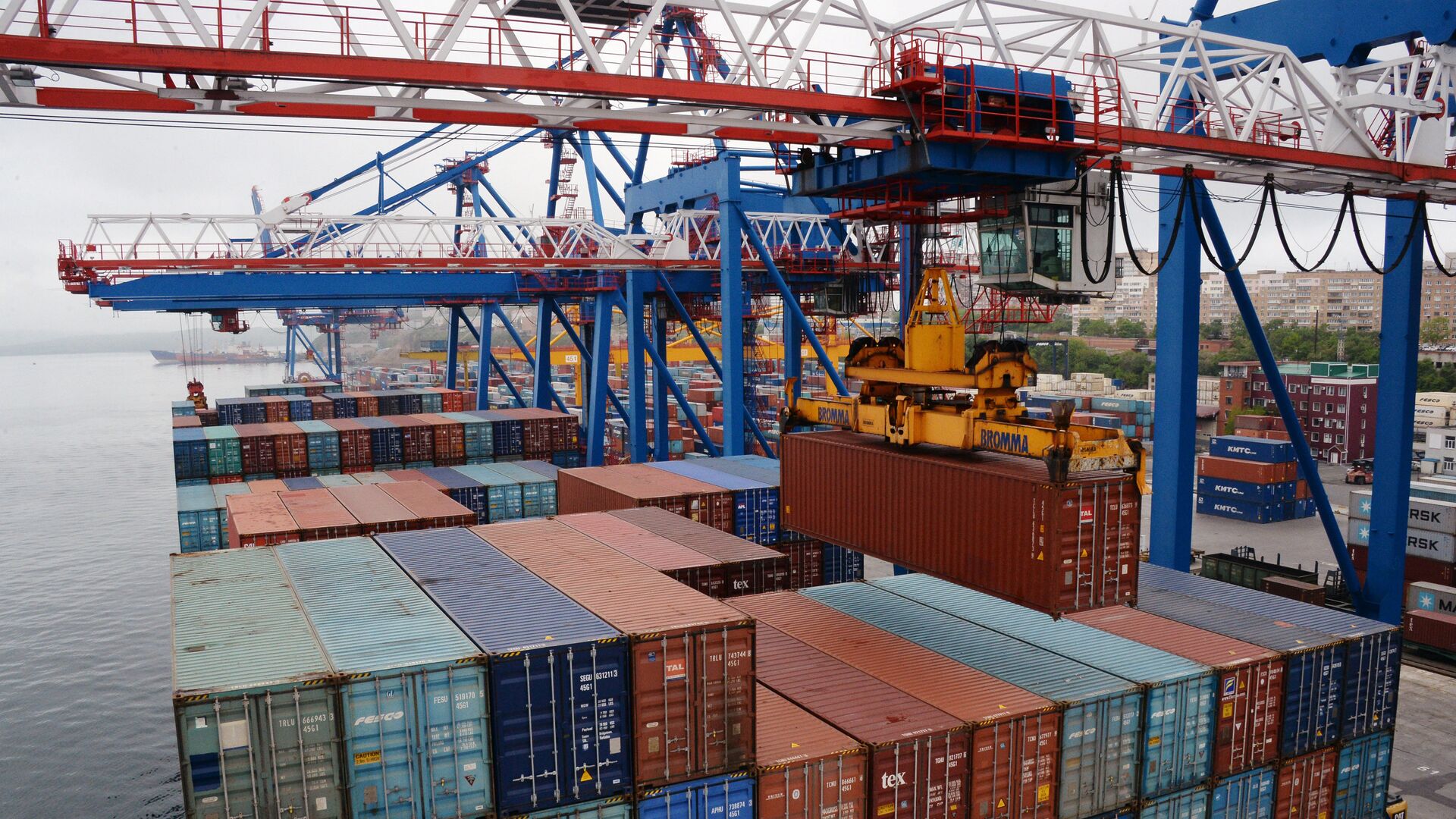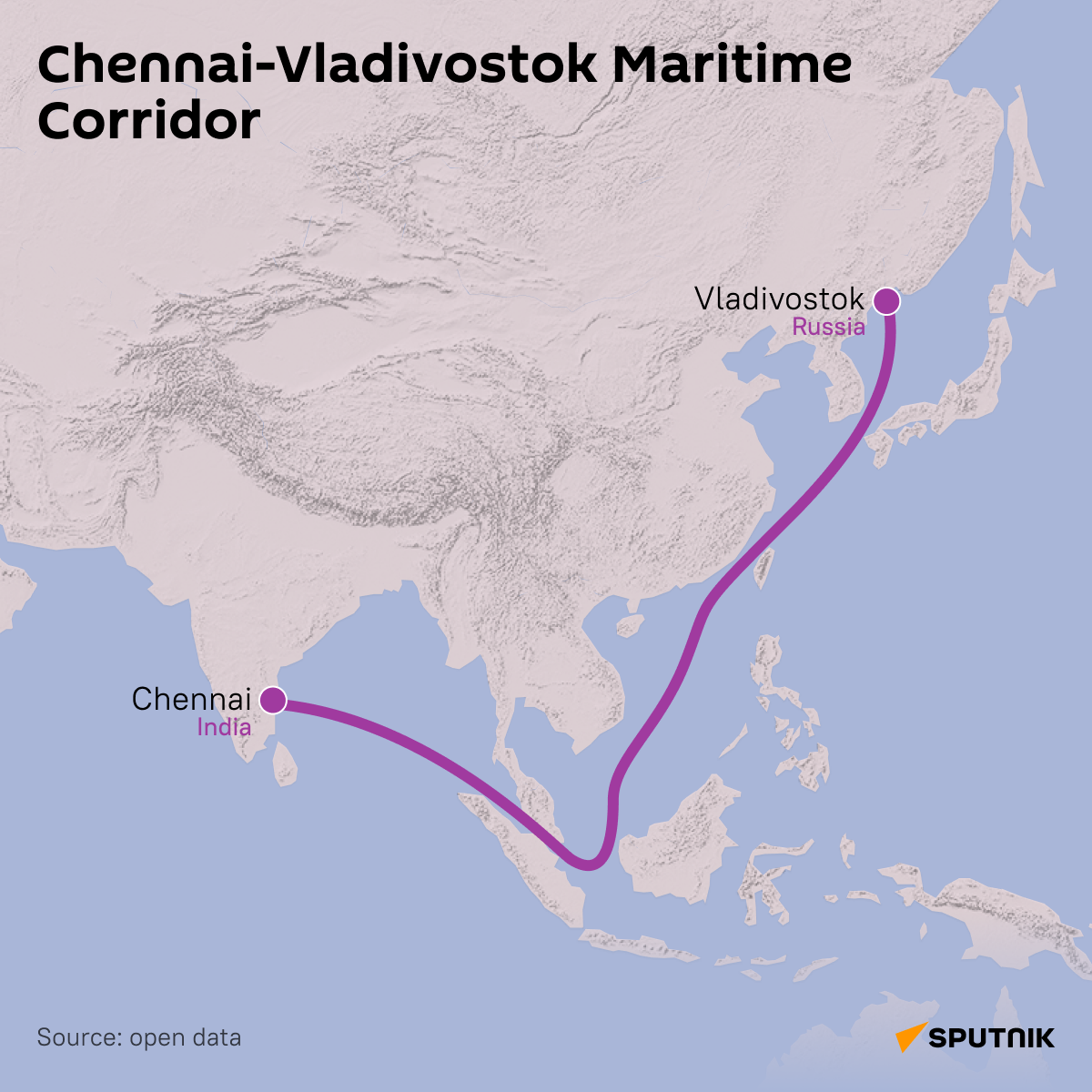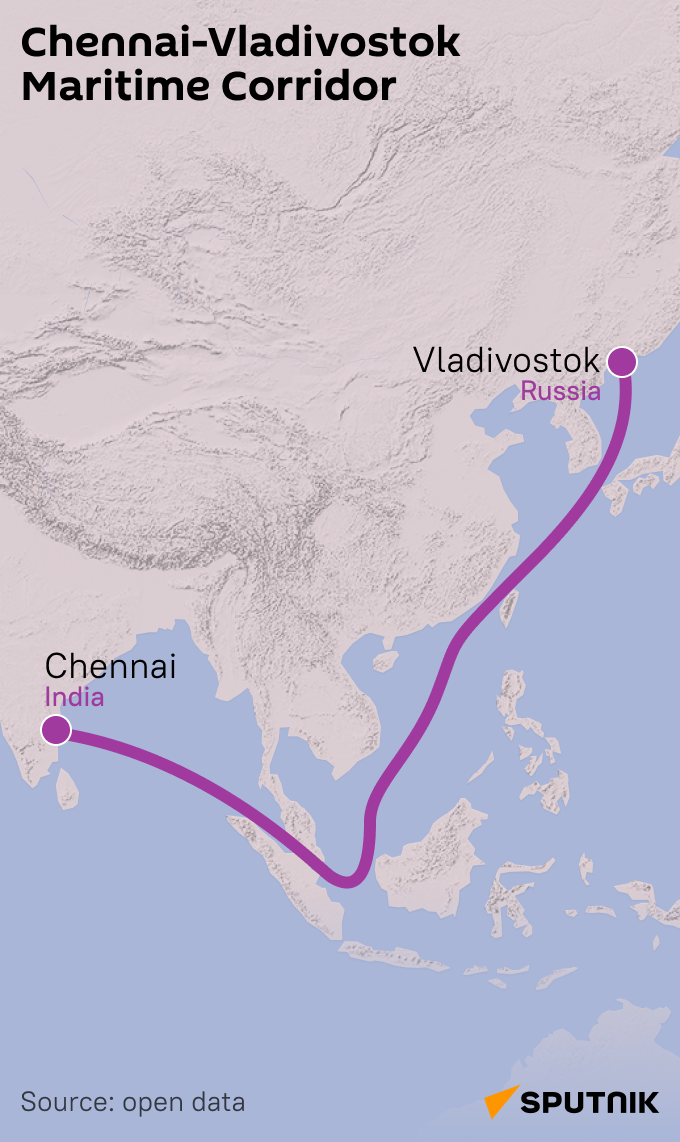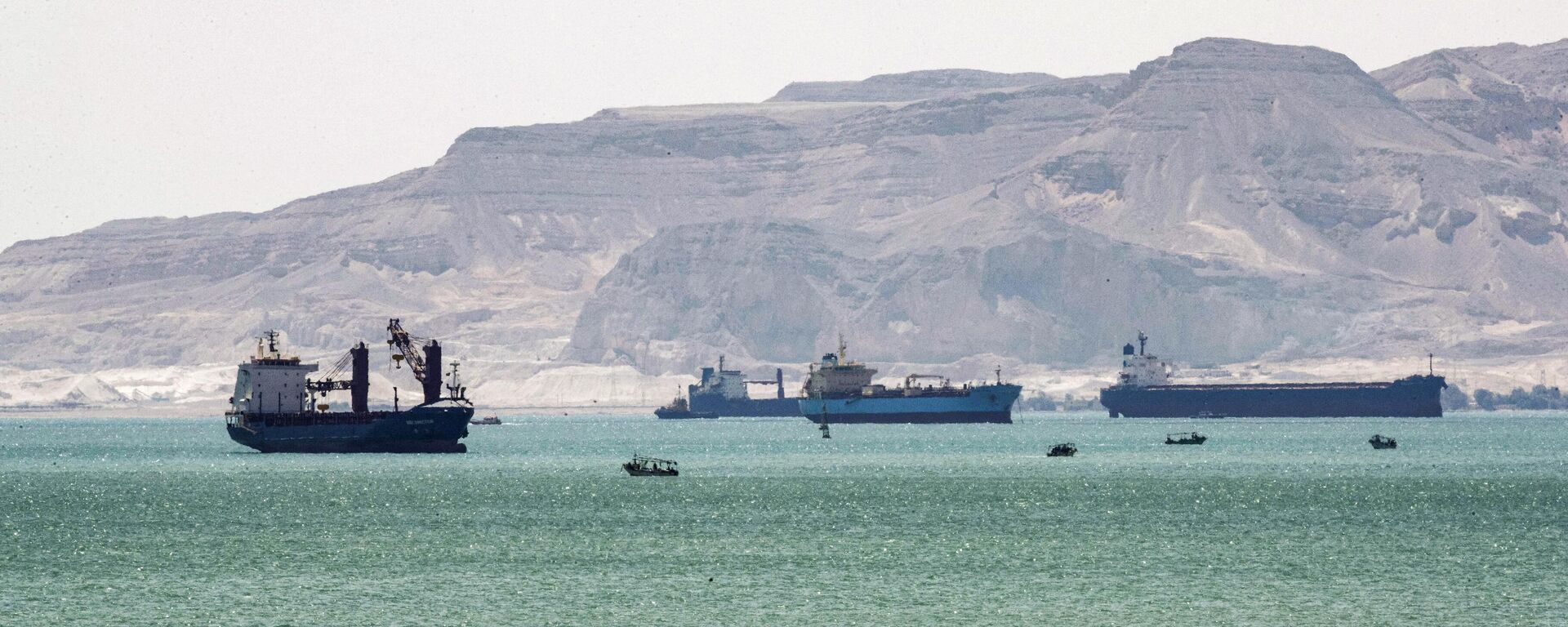https://sputniknews.in/20240119/fate-of-imec-doomed-amid-middle-east-crises---but-there-are-alternatives-6254632.html
Fate of IMEC Doomed Amid Middle East Crises - But There Are Alternatives
Fate of IMEC Doomed Amid Middle East Crises - But There Are Alternatives
Sputnik India
Amid the Red Sea Crises, the IMEC project faces imminent peril with the commencement of the Israel-Hamas war.
2024-01-19T10:55+0530
2024-01-19T10:55+0530
2024-01-19T12:26+0530
israel-hamas war
narendra modi
india
israel
chennai
houthis
european union (eu)
middle east
india-europe-middle east corridor
moscow
https://cdn1.img.sputniknews.in/img/07e7/08/09/3485764_0:0:3077:1731_1920x0_80_0_0_f60da6b97fc615e24c4ce9d945d77dbd.jpg
Amid the Red Sea Crises, the India-Middle East-Europe Economic Corridor (IMEC) project faces imminent peril with the commencement of the Israel-Hamas war. However, the situation has been exacerbated by Iran's entry into the conflict and the subsequent threats from the Houthis targeting American and Israeli vessels.Moreover, the Houthis have garnered increased backing within their nation and forged alliances within the broader resistance movement in the region. The Israeli offensive in Gaza, resulting in the loss of over 24,000 lives, predominantly civilians, had already incited their indignation, reports Media.Navigational Challenges: Red Sea's Quasi-Siege and Its Impact on Shipping and Innovation“During the G-20 summit in New Delhi, Indian Prime Minister Narendra Modi unveiled the IMEC, a multi-billion connectivity initiative that establishes a link between India and Europe,” said, Dr Prabir De, Professor at the Centre for Maritime Economy and Connectivity (CMEC) at Research and Information System for Developing Countries (RIS) told Sputnik India.In the context of the India-Middle East-Europe Economic Corridor (IMEC), Subramanyam Sridharan, Distinguished Member, Chennai Center for China Studies told Sputnik India that ‘considering the substantial infrastructure development required within Saudi Arabia, such as the construction of railroads and related projects. The ongoing events in the Red Sea and the evolving political and geopolitical dynamics between the Arab States and Israel are influencing the current landscape. The normalization of relations between Israel and Saudi Arabia, although a significant aspect, seems to have been somewhat sidelined amidst the present circumstances. These factors contribute to a level of unpredictability in the current scenario’.Navigating through the complexities of 2024, Prabir De mentioned that “given these uncertainties and risks, it's prudent to observe developments and trends. From India's perspective, with reliance on oil resources from Gulf nations, there's a pressing need to evacuate or stop energy supplies. Creating an alternative route for the swift transportation of oil from the Gulf to India becomes crucial, ensuring the stability of our trade and energy supplies”.Conflict Fallout: Uncertainty Looms Over IMEC as Israel-Hamas Tensions Escalate“IMEC has been hailed by India and its partners as a transformative force in the power dynamics of Eurasia, countering China and tilting the balance towards India, the United States, and the West. However, cautionary voices have been raised, underscoring the need to temper expectations based on the underwhelming outcomes of previous Western infrastructure initiatives. Programs like the American BUILD and Build Back Better World, the EU’s Global Gateway, and the G-7’s Partnership for Global Infrastructure Investment fell short in mobilizing the necessary investments to effectively challenge the Belt and Road Initiative (BRI). While the details of IMEC are still in progress, the required investment remains unknown” Captain noted. Strategic Significance: Accelerating the Chennai-Vladivostok Corridor for Energy Security“The Lobito corridor, located in Angola, could offer an alternative route, potentially connecting Africa and Europe. On the other hand, the Chennai-Vladivostok corridor links India with Russia's Far East, providing an alternative connection for those regions”, said the analysts.“The feasibility of utilizing the Northern Arctic passage is currently questionable, as it lacks attractiveness and cost-effectiveness. Therefore, while exploring substitutes, it is crucial to consider not only the current crisis but also the practicality and economic viability of each potential route” Captain noted.
https://sputniknews.in/20240117/north-south-transport-corridor-increasingly-important-amid-red-sea-crisis-6235849.html
india
israel
chennai
middle east
moscow
chabahar port
red sea
eurasia
africa
Sputnik India
feedback.hindi@sputniknews.com
+74956456601
MIA „Rossiya Segodnya“
2024
Swapna Nair
https://cdn1.img.sputniknews.in/img/07e7/09/12/4320104_0:0:681:681_100x100_80_0_0_ca8a7d4d582609272840ffdd1cde7278.jpg
Swapna Nair
https://cdn1.img.sputniknews.in/img/07e7/09/12/4320104_0:0:681:681_100x100_80_0_0_ca8a7d4d582609272840ffdd1cde7278.jpg
News
en_IN
Sputnik India
feedback.hindi@sputniknews.com
+74956456601
MIA „Rossiya Segodnya“
Sputnik India
feedback.hindi@sputniknews.com
+74956456601
MIA „Rossiya Segodnya“
Swapna Nair
https://cdn1.img.sputniknews.in/img/07e7/09/12/4320104_0:0:681:681_100x100_80_0_0_ca8a7d4d582609272840ffdd1cde7278.jpg
red sea crises, western india middle east-europe economic corridor (imec), gaza war, houthis, american, israeli vessels, houthis, alliances, israeli offensive , gaza, new delhi, indian prime minister narendra modi, india-middle east-europe economic corridor (imec), india and europe, dr prabir de, professor at the centre for maritime economy and connectivity (cmec) at research and information system for developing countries (ris), chennai center for china studies, saudi arabia, geopolitical dynamics, arab states and israel, current landscape, saudi arabia, gulf nations, transportation of oil, gulf, india, trade and energy supplies, scrutiny has implications, european destinations, connectivity and trade, conflict fallout, united states, united service institution of india & council for strategic and defense research (csdr), saudi arabia and israel, china, india, the united states, and the west, american build and build back better world, the eu’s global gateway, and the g-7’s partnership for global infrastructure investment fell short in mobilizing the necessary investments to effectively challenge the belt and road initiative (bri), israeli response, gaza, saudi arabia, chennai-vladivostok corridor, lobito corridor, lobito corridor, african regions, russia's far east, accelerate chennai-vladivostok, northern arctic passage
red sea crises, western india middle east-europe economic corridor (imec), gaza war, houthis, american, israeli vessels, houthis, alliances, israeli offensive , gaza, new delhi, indian prime minister narendra modi, india-middle east-europe economic corridor (imec), india and europe, dr prabir de, professor at the centre for maritime economy and connectivity (cmec) at research and information system for developing countries (ris), chennai center for china studies, saudi arabia, geopolitical dynamics, arab states and israel, current landscape, saudi arabia, gulf nations, transportation of oil, gulf, india, trade and energy supplies, scrutiny has implications, european destinations, connectivity and trade, conflict fallout, united states, united service institution of india & council for strategic and defense research (csdr), saudi arabia and israel, china, india, the united states, and the west, american build and build back better world, the eu’s global gateway, and the g-7’s partnership for global infrastructure investment fell short in mobilizing the necessary investments to effectively challenge the belt and road initiative (bri), israeli response, gaza, saudi arabia, chennai-vladivostok corridor, lobito corridor, lobito corridor, african regions, russia's far east, accelerate chennai-vladivostok, northern arctic passage
Fate of IMEC Doomed Amid Middle East Crises - But There Are Alternatives
10:55 19.01.2024 (Updated: 12:26 19.01.2024) The IMEC project is in peril following the events of October 7, marked by the war in the Gaza Strip and now further dimmed by the increased risk of Houthi attacks on American and Israeli ships, coupled with Iran's involvement in the conflict, leading to a near-extinguishment of IMEC's prospects.
Amid the Red Sea Crises, the India-Middle East-Europe Economic Corridor (IMEC) project faces imminent peril with the commencement of the Israel-Hamas war. However, the situation has been exacerbated by Iran's entry into the conflict and the subsequent threats from the Houthis targeting American and Israeli vessels.
Moreover, the Houthis have garnered increased backing within their nation and forged alliances within the broader resistance movement in the region. The Israeli offensive in Gaza, resulting in the loss of over 24,000 lives, predominantly civilians, had already incited their indignation, reports Media.
Navigational Challenges: Red Sea's Quasi-Siege and Its Impact on Shipping and Innovation
“During the G-20 summit in New Delhi, Indian Prime Minister Narendra Modi unveiled the IMEC, a multi-billion connectivity initiative that establishes a link between India and Europe,” said, Dr Prabir De, Professor at the Centre for Maritime Economy and Connectivity (CMEC) at Research and Information System for Developing Countries (RIS) told Sputnik India.
In the context of the India-Middle East-Europe Economic Corridor (IMEC),
Subramanyam Sridharan, Distinguished Member,
Chennai Center for China Studies told Sputnik India that ‘considering the substantial infrastructure development required within Saudi Arabia, such as the construction of railroads and related projects. The ongoing events in the Red Sea and the evolving political and geopolitical dynamics between the Arab States and Israel are influencing the current landscape. The normalization of relations between Israel and Saudi Arabia, although a significant aspect, seems to have been somewhat
sidelined amidst the present circumstances. These factors contribute to a level of unpredictability in the current scenario’.
Navigating through the complexities of 2024, Prabir De mentioned that “given these uncertainties and risks, it's prudent to observe developments and trends. From India's perspective, with reliance on oil resources from Gulf nations, there's a pressing need to
evacuate or stop energy supplies. Creating an alternative route for the swift transportation of oil from the Gulf to India becomes crucial, ensuring the stability of our trade and energy supplies”.
“The Red Sea is experiencing a quasi-siege, dissuading major shipping lines from navigating through it. This heightened scrutiny has implications, prolonging travel durations and disrupting the flow of innovation. Consequently, the previously established routes from India through the Red Sea to European destinations are now being bypassed, signalling an impact on India in terms of connectivity and trade due to re-routing and insurance cost,” Subramanyam Sridharan, Distinguished Member, Chennai Center for China Studies remarked.
Conflict Fallout: Uncertainty Looms Over IMEC as Israel-Hamas Tensions Escalate
The US aims to strengthen its ties with India, Captain Sarabjeet Parmar (Retd), Distinguished Fellow, United Service Institution of India & Council for Strategic and Defense Research (CSDR) told Sputnik, “positioning it as a counterforce to China and supports the normalization of relations between Saudi Arabia and Israel by incorporating Israel into the IMEC scheme”.
“IMEC has been hailed by India and its partners as a transformative force in the power dynamics of Eurasia, countering China and tilting the balance towards India, the United States, and the West. However, cautionary voices have been raised, underscoring the need to temper expectations based on the
underwhelming outcomes of previous Western infrastructure initiatives. Programs like the American BUILD and Build Back Better World, the
EU’s Global Gateway, and the G-7’s Partnership for Global Infrastructure Investment fell short in mobilizing the necessary investments to effectively challenge the Belt and Road Initiative (BRI). While the details of IMEC are still in progress, the required investment remains unknown” Captain noted.
Parmar pointed out that “the Israel-Hamas conflict exacerbated by Iran's official entry into the conflict and the subsequent threats from the Houthis targeting American and Israeli vessels introduces a high level of uncertainty regarding the IMEC project's future. The anticipation of a robust Israeli response, potentially involving ground forces in densely populated Gaza, raises concerns about a significant civilian death toll. This situation could jeopardize the ongoing diplomatic normalization process between Israel and Saudi Arabia”.
Strategic Significance: Accelerating the Chennai-Vladivostok Corridor for Energy Security
Speaking about the uncertainty and challenges posed by the Red Sea crisis and the seemingly grim future of IMEC, Captain highlighted that “alternative corridors like the Lobito corridor and
the Chennai-Vladivostok corridor emerge as potential options. The Lobito corridor could serve as a substitute route. It is important to note, however, that these corridors are designed for different destinations”.
“The Lobito corridor, located in Angola, could offer an alternative route, potentially connecting Africa and Europe. On the other hand, the Chennai-Vladivostok corridor links India with
Russia's Far East, providing an alternative connection for those regions”, said the analysts.
Speaking about the Chennai-Vladivostok corridor, Prabir emphasized that “this route boasts numerous advantages, especially in terms of securing energy resources. If an alternative route could accelerate the establishment of the Chennai-Vladivostok corridor, it would significantly benefit India in sourcing crucial resources for its economy. The expansion of the Chennai-Vladivostok route holds strategic significance, particularly in light of the Red Sea Crisis, making it an integral component of India's broader plans”.
“The feasibility of utilizing the Northern Arctic passage is currently questionable, as it lacks attractiveness and cost-effectiveness. Therefore, while exploring substitutes, it is crucial to consider not only the current crisis but also the practicality and economic viability of each potential route” Captain noted.





